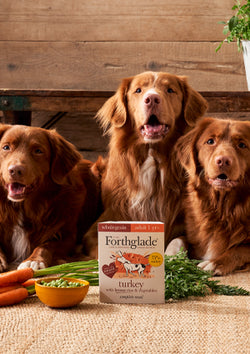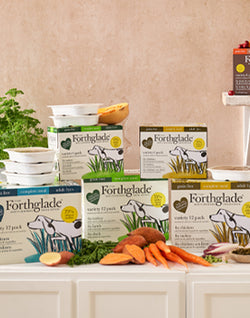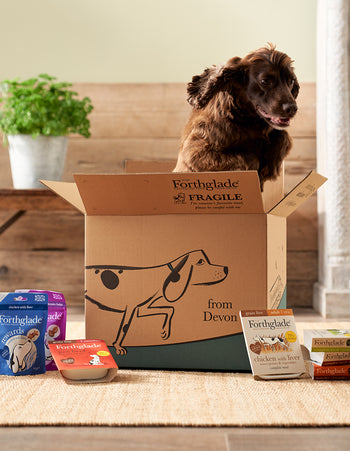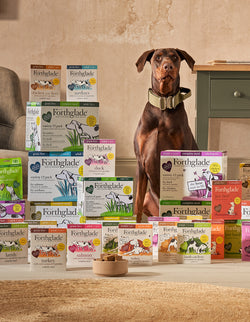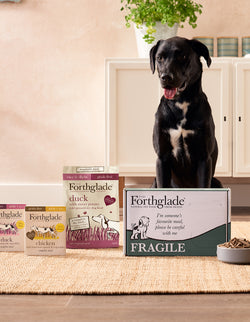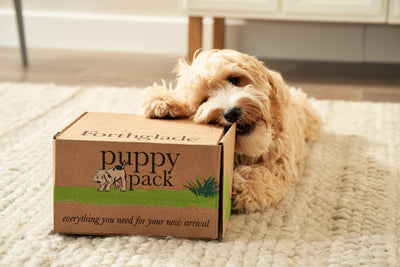As a dog owner, understanding how long it takes for a dog to digest food is key to keeping them happy and healthy. Let’s dive into the digestive process and learn how to support your furry friend's well-being!

How long does it take for a dog to digest food?
The digestive process in dogs
The digestive journey begins in the mouth. When your dog eats, they chew their food, mixing it with saliva to start the breakdown process. This chewed food then travels down the oesophagus and enters the stomach. The stomach plays a vital role in digestion, mixing food with powerful digestive juices and enzymes to transform it into a semi-liquid consistency.
Once the food leaves the stomach, it moves into the small intestine. This is where most of the nutrient absorption occurs. Enzymes from the pancreas and bile from the liver continue breaking down the food, allowing the body to absorb essential nutrients. After the small intestine, any remaining indigestible materials pass into the large intestine, where water is absorbed and waste is prepared for elimination.
Factors affecting digestion time:
Several factors can influence how long it takes for your dog to digest their food:

Size and Breed of the Dog
The size and breed of your dog can significantly impact digestion time. Generally, larger breeds tend to digest food more slowly than smaller breeds. This is partly due to their larger stomachs and longer intestines, which require more time to process the food.
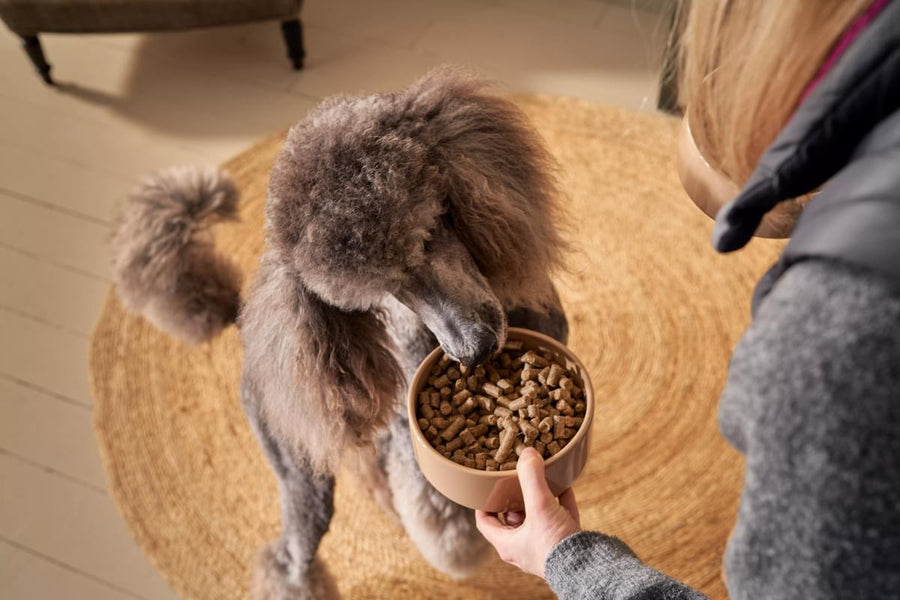
Type of Food
The type of food you choose for your dog is another critical factor. Dry kibble typically takes longer to digest compared to wet food. Kibble’s dense composition means it requires more time for the stomach and intestines to break it down. On the other hand, wet food, which contains more moisture, is generally easier to digest. Raw diets can vary widely in digestion time, depending on the ingredients and how they are prepared.

Quality of the Food
The quality of the food you provide also plays a significant role. High-quality, nutrient-dense foods are typically easier for dogs to digest. Foods made with natural ingredients tend to break down more efficiently, leading to quicker digestion times. In contrast, poor-quality foods may take longer to digest and can contribute to digestive issues.

Individual Health and Metabolism
Every dog is unique, and factors such as age, individual health conditions, and metabolism can all affect digestion time. For example, puppies and active dogs often digest food more quickly than older or less active dogs. Monitoring your dog’s health can help you identify any changes in their digestive patterns.
Average digestion time for different types of food.

Dry Kibble
Typically takes about 8 to 10 hours to digest, due to its lower moisture content.

Wet Food
Generally digested in about 4 to 6 hours, as the moisture aids in the breakdown process.

Raw Diet
Often digested more quickly, within 4 to 5 hours, due to the high moisture and natural enzymes.
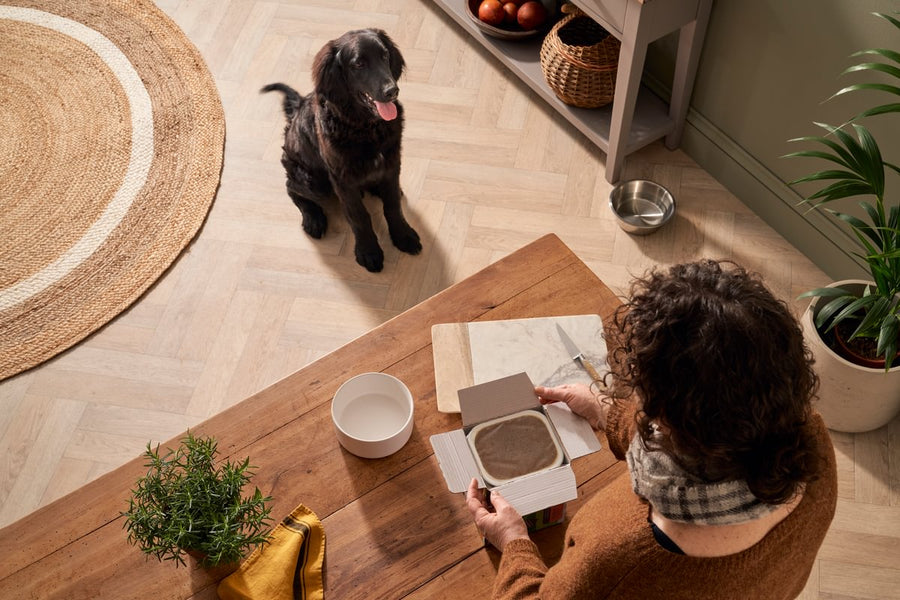
Signs of Healthy Digestion
Keeping an eye on your dog’s digestive health is essential. Here are some signs that indicate their digestion is functioning normally:
• Regular Bowel Movements: Consistent, well-formed stools are a good sign of healthy digestion.
• Comfort After Eating: A dog that feels good after meals won’t show signs of discomfort or bloating.
• Consistent Appetite: A healthy appetite is an excellent indicator that digestion is on track.

Common Digestive Issues in Dogs
Despite their robust digestive systems, dogs can experience a variety of digestive problems. Common issues include:
• Gastric Upset: Often the result of dietary indiscretion or sudden changes in diet, leading to discomfort and irregular stools.
• Food Allergies: Certain ingredients can trigger allergic reactions in some dogs, resulting in digestive upset and discomfort.
• Inflammatory Bowel Disease: A more serious condition that requires veterinary intervention, characterised by chronic vomiting, diarrhoea, and weight loss.
Tips for Supporting Healthy Digestion in Dogs

Feed a Balanced Diet:
Choose high-quality dog food that meets your pup’s nutritional needs. A balanced diet contributes to overall health and supports digestion, try and avoid sudden changes in diet.

Encourage Regular Exercise:
Physical activity not only helps with weight management but also aids in digestion and overall well-being.

Monitor for Digestive Issues:
Keep a close eye on your dog’s behaviour and appetite. If you notice any changes, it might be time to consult your vet.

Treats for Digestive Health:
Consider incorporating wellness treats. Forthglade offers digestive health dog treats that are formulated to aid digestion and promote gut health.
When to Seek Veterinary Care
If your dog shows persistent signs of digestive trouble, such as vomiting, diarrhoea, or significant changes in appetite or behaviour, it’s essential to consult your veterinarian. Early intervention can prevent more serious health issues and ensure your pup stays on the path to recovery.
Conclusion
Understanding how long it takes for a dog to digest food is crucial for responsible pet ownership. By considering factors such as diet, size, and individual health, you can better support your dog’s digestive well-being. For nutritious options that promote health, explore our collection of dog treats and natural dog food.
With a little knowledge and care, you can help your furry friend lead a happy, healthy life!




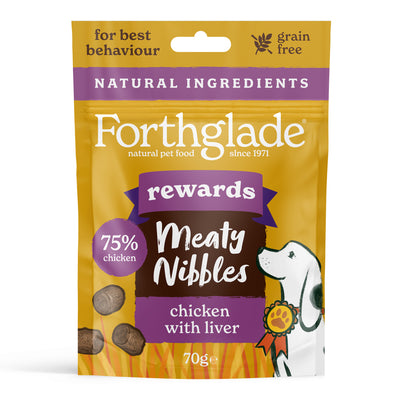







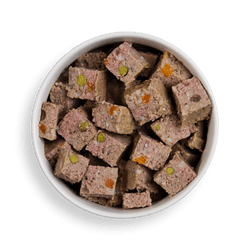

 Over 7,339 5* Reviews
Over 7,339 5* Reviews
 Established since 1971 - Made in Devon!
Established since 1971 - Made in Devon!



